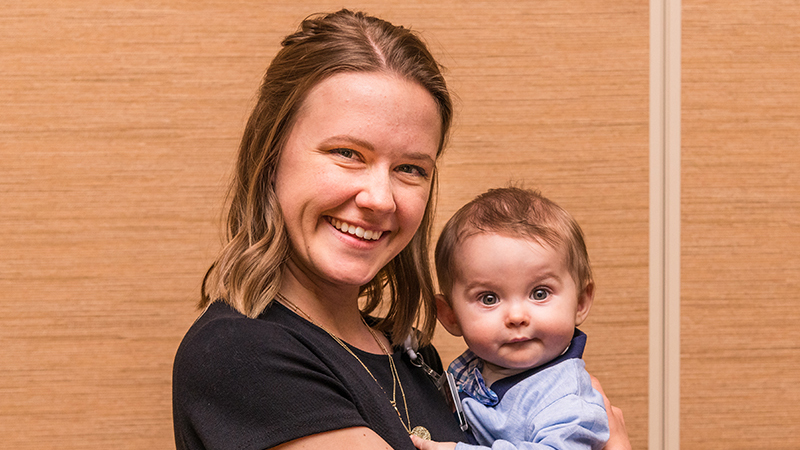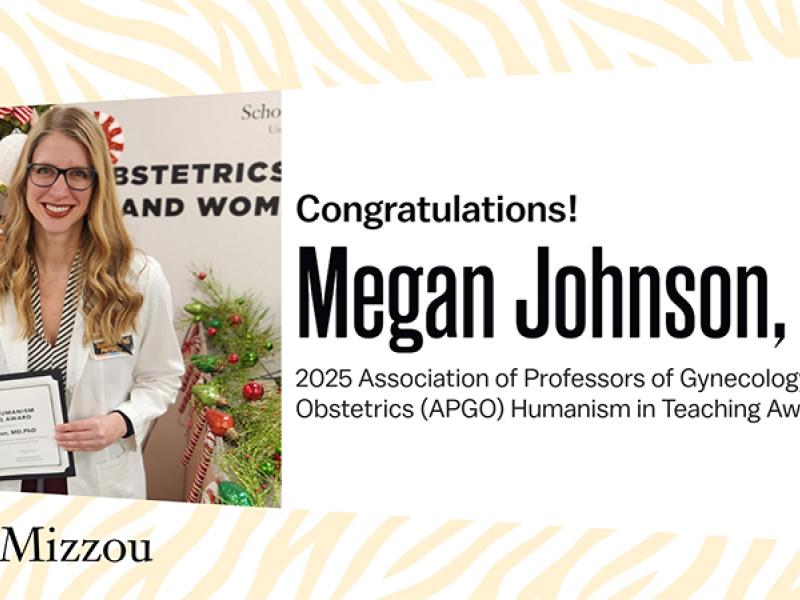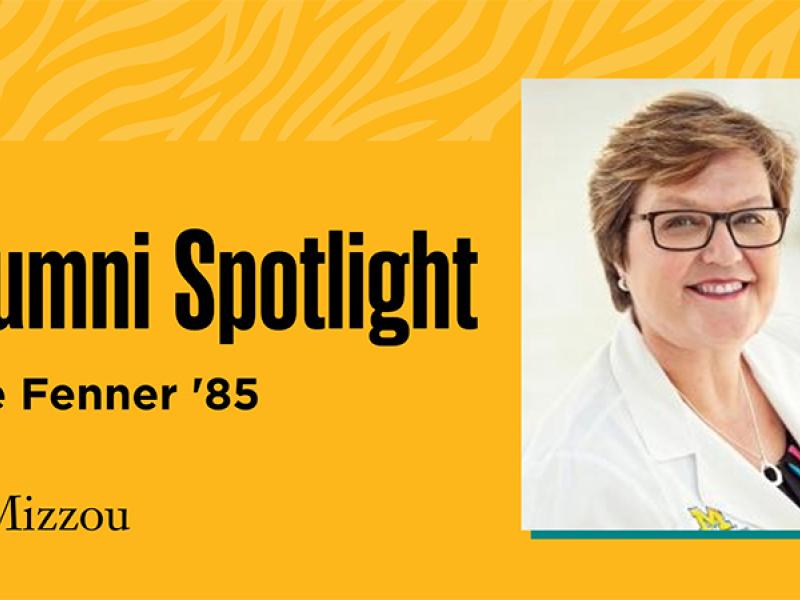
Jessica Hall was driving with the windows down when she received the call. The person on the other end said something about her baby boy, Memphis, winning a teaching award. That must be a mistake, she replied. When the caller persisted, she pulled off the side of the road and rolled up the windows so she could hear clearly.
She was told again that Melanie Pancoast, a third-year medical student at the University of Missouri’s Springfield Clinical Campus, had selected Memphis as the patient who was one of her greatest teachers. MU’s Legacy Teachers™ program honors these patients every year, and the Halls were invited to the inaugural Springfield edition of the event.
Jessica broke down in tears.
“Yes, whatever Melanie needs or wants, we will do,” she said. “We owe her our son’s life.”
The effect Pancoast and Memphis had on each other is a perfect example of the relationship the Legacy Teachers program celebrates. The program began at MU in 2005 and, under the direction of Betsy Garrett, MD ’79, has spread to other medical schools across the country. This year marked the first time MU held a separate ceremony for its Springfield class, and six of the 11 third-year students participated.
“With the growth of the Springfield campus, it seemed very natural to have a separate celebration down here so Springfield and the greater southwest Missouri area was aware of this program and to make it more accessible for patients in this area,” Garrett said.
The location made the banquet convenient for the Halls, but they would have traveled almost anywhere to celebrate this occasion with Pancoast.
The relationship began last fall when Jessica and Levi Hall brought their feverish 3-month-old son to their pediatrician in Nixa, where Pancoast was completing her outpatient pediatric rotation. The pediatrician later noticed abnormalities in Memphis’ blood and sent the Halls to Mercy Springfield Hospital. That’s where Pancoast and the Halls reunited on the first day of her inpatient pediatric rotation.
“It’s difficult as a medical student to know what your role is in terms of patient care,” Pancoast said. “That’s something we all struggle with. But it was pretty great when I met Memphis and his parents and realized I do have an important role in the medical care of each patient. I can serve them with compassion and have a lot more time to spend with them than the attending physicians do, just because they’re so busy.”
Her interest in Memphis’ health extended outside of her hours at the hospital.
“I think the second day we were there, she came in and said: ‘Hey, I went home and did some research, and I think I’ve come up with something that might be what is going on with him. I talked to the doctor about it, and we’re going to add it to the testing,’ ” Jessica said.
As it turned out, Pancoast was right. A fungal infection had led to hemophagocytic lymphohistiocytosis (HLH), a rare, life-threatening disease of the immune system that damaged Memphis’ spleen, liver, kidneys and bone marrow and required five blood transfusions.
After diagnosis, Memphis responded to treatment and was all smiles at the Legacy Teachers banquet five months later.
“I learned that just as important as treating a patient’s disease and being able to talk to them about medicine is listening to them and providing them with compassion,” Pancoast said.
Article Spotlight
- Created in 2005 at MU
- Honors patients who teach medical students important lessons about being a physician
- Adopted by six other medical schools
- Nearly 40% of MU third-year students participated in 2019
Read more stories from MU Medicine Magazine.





